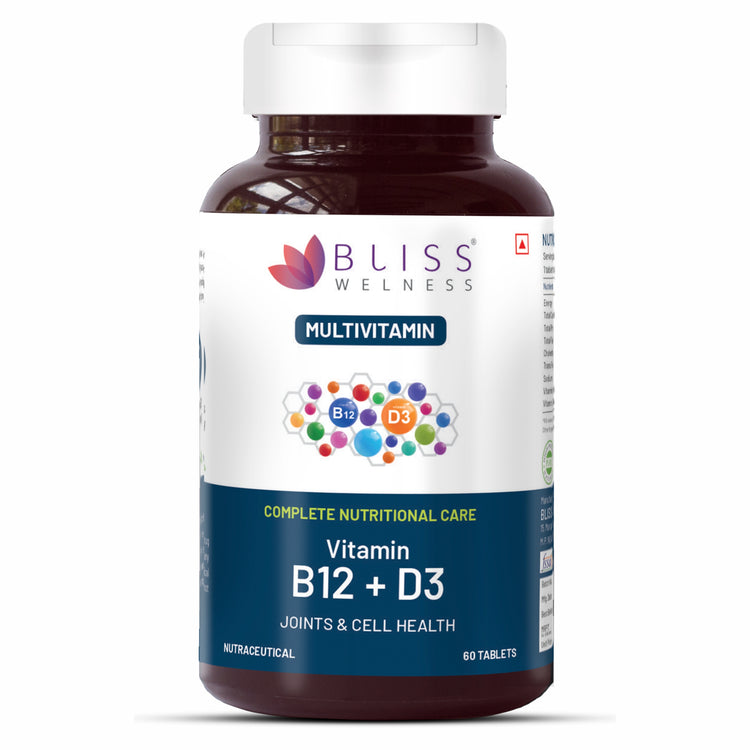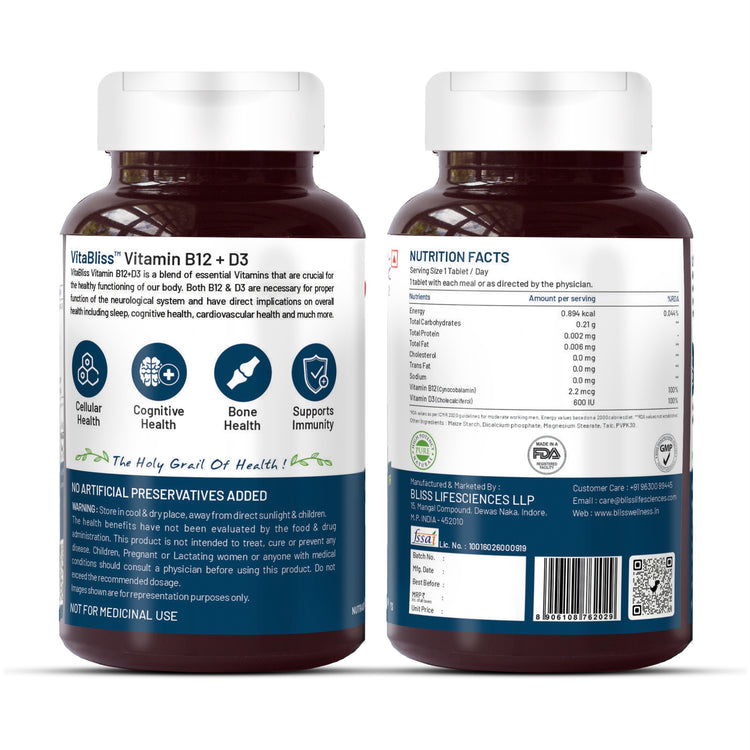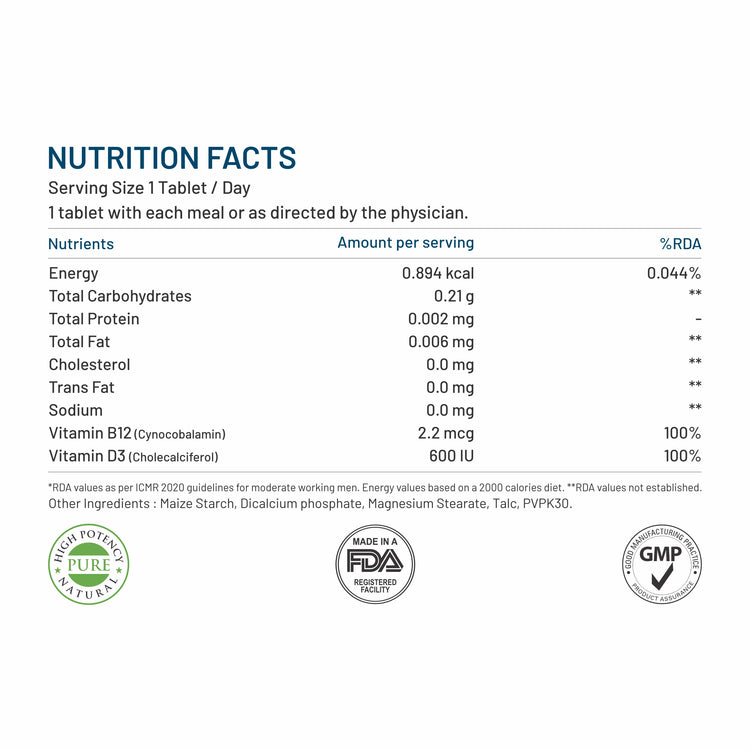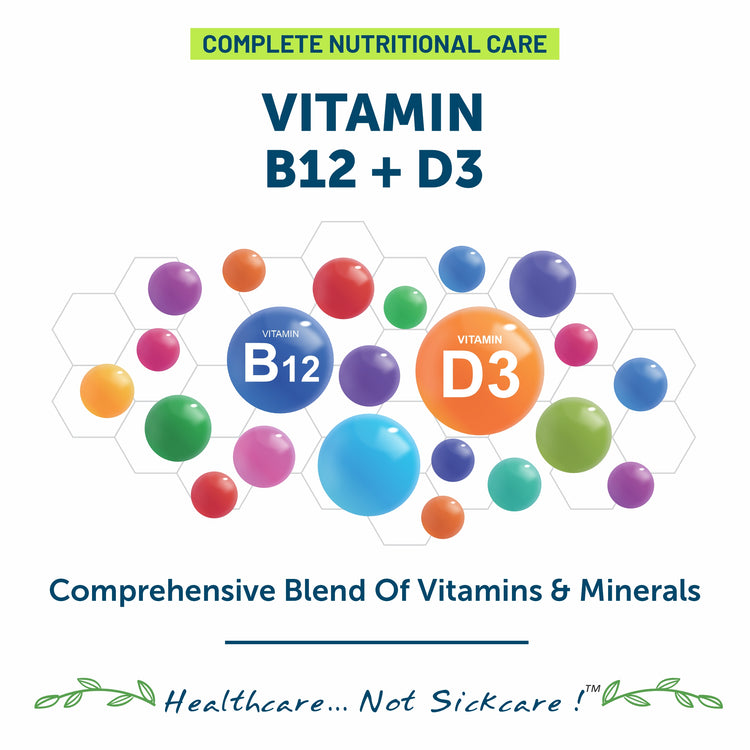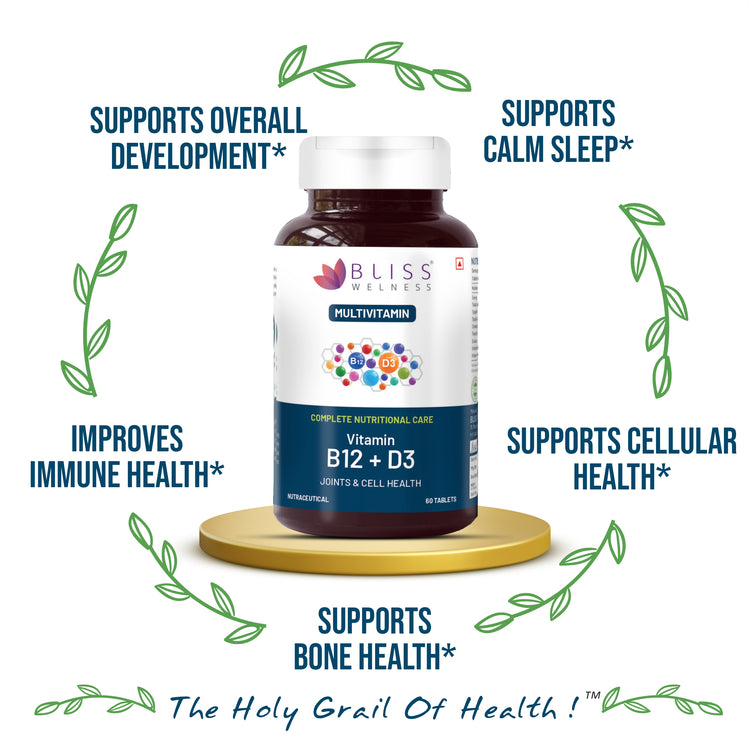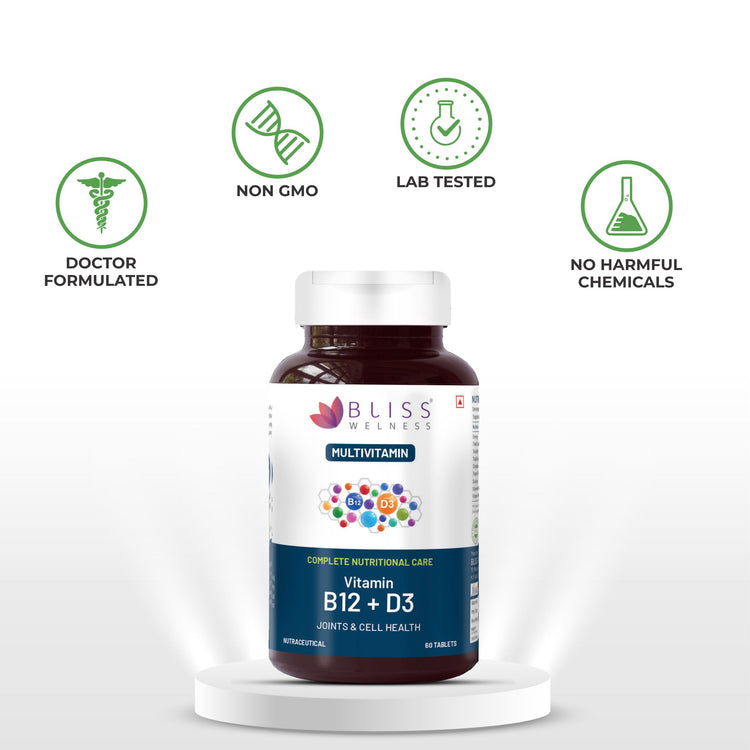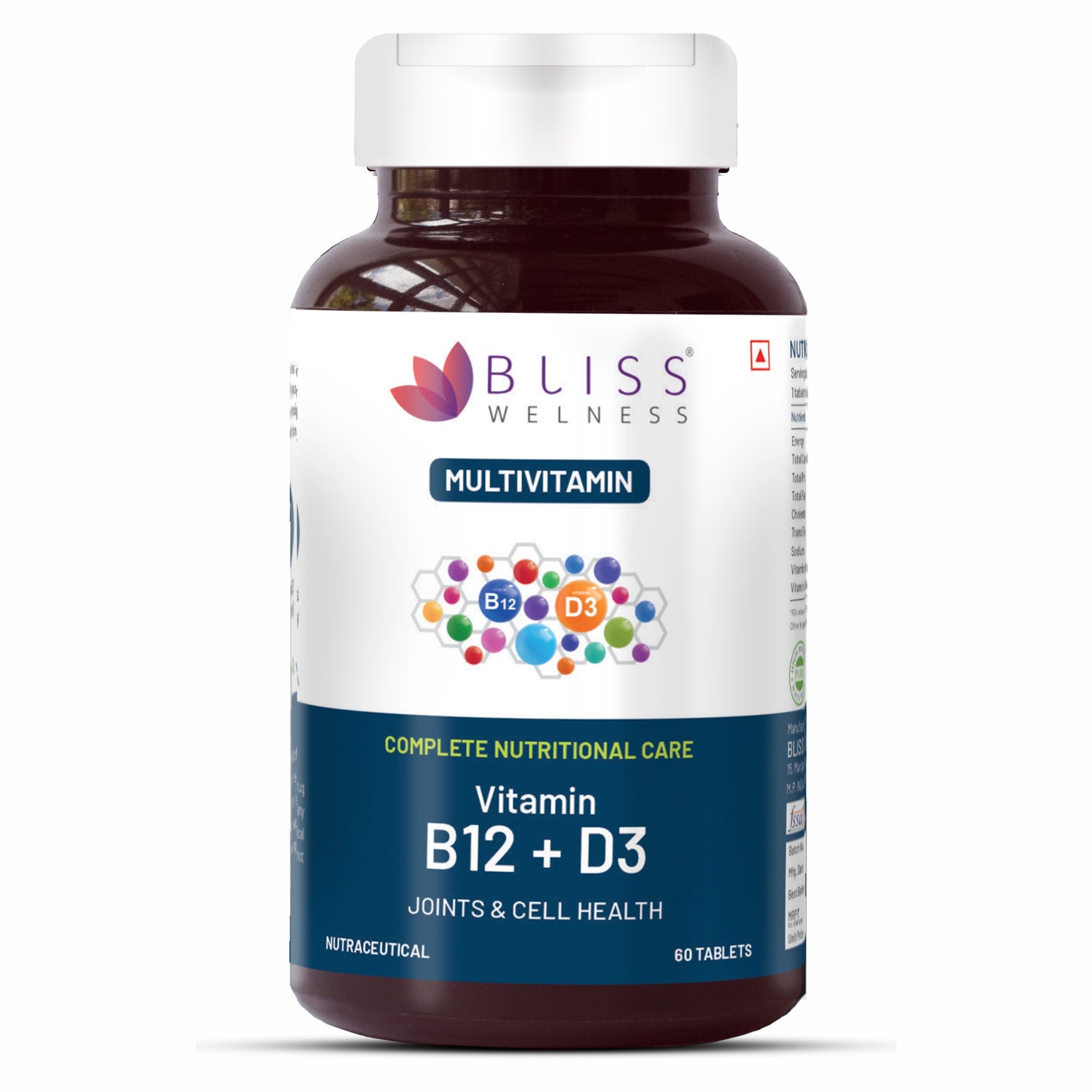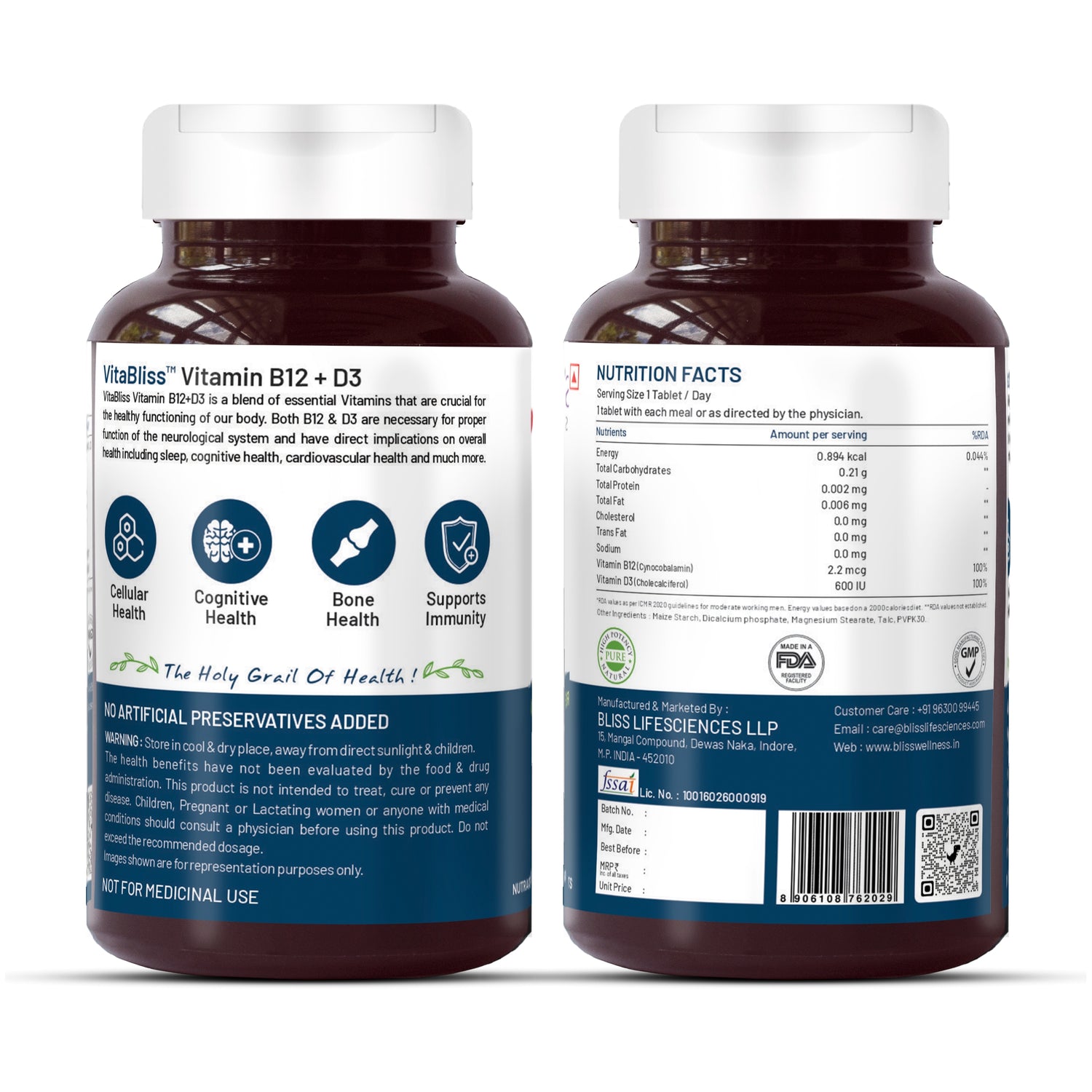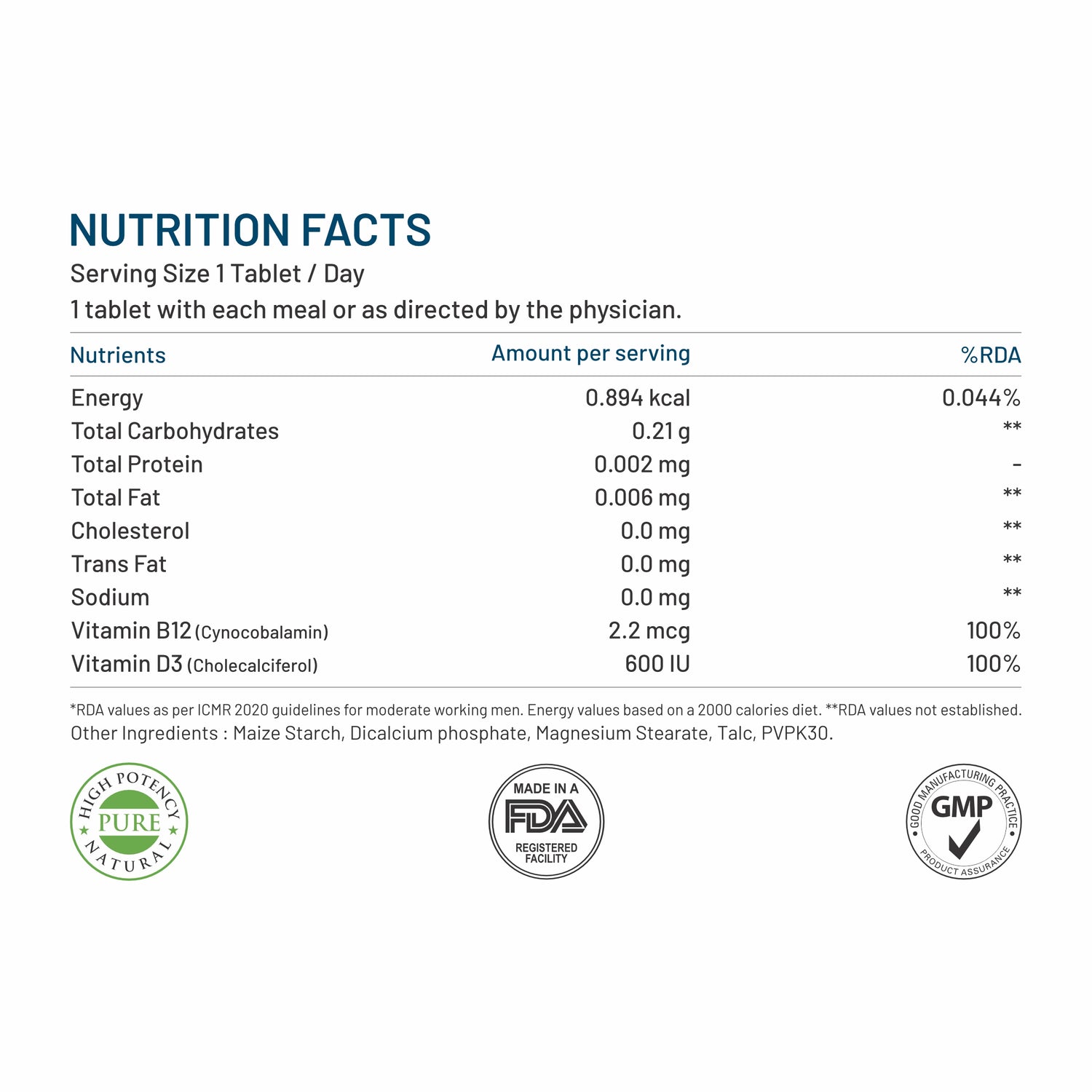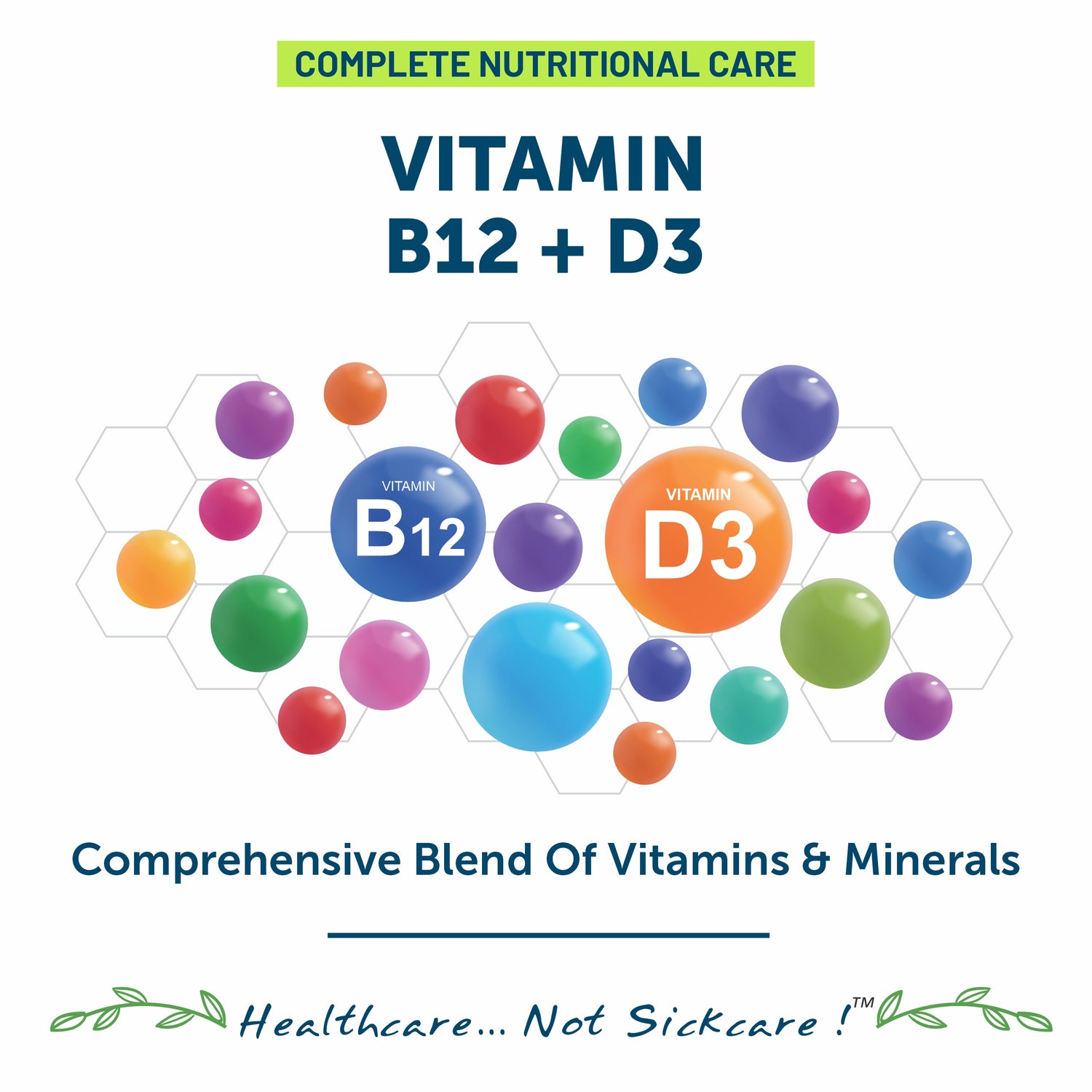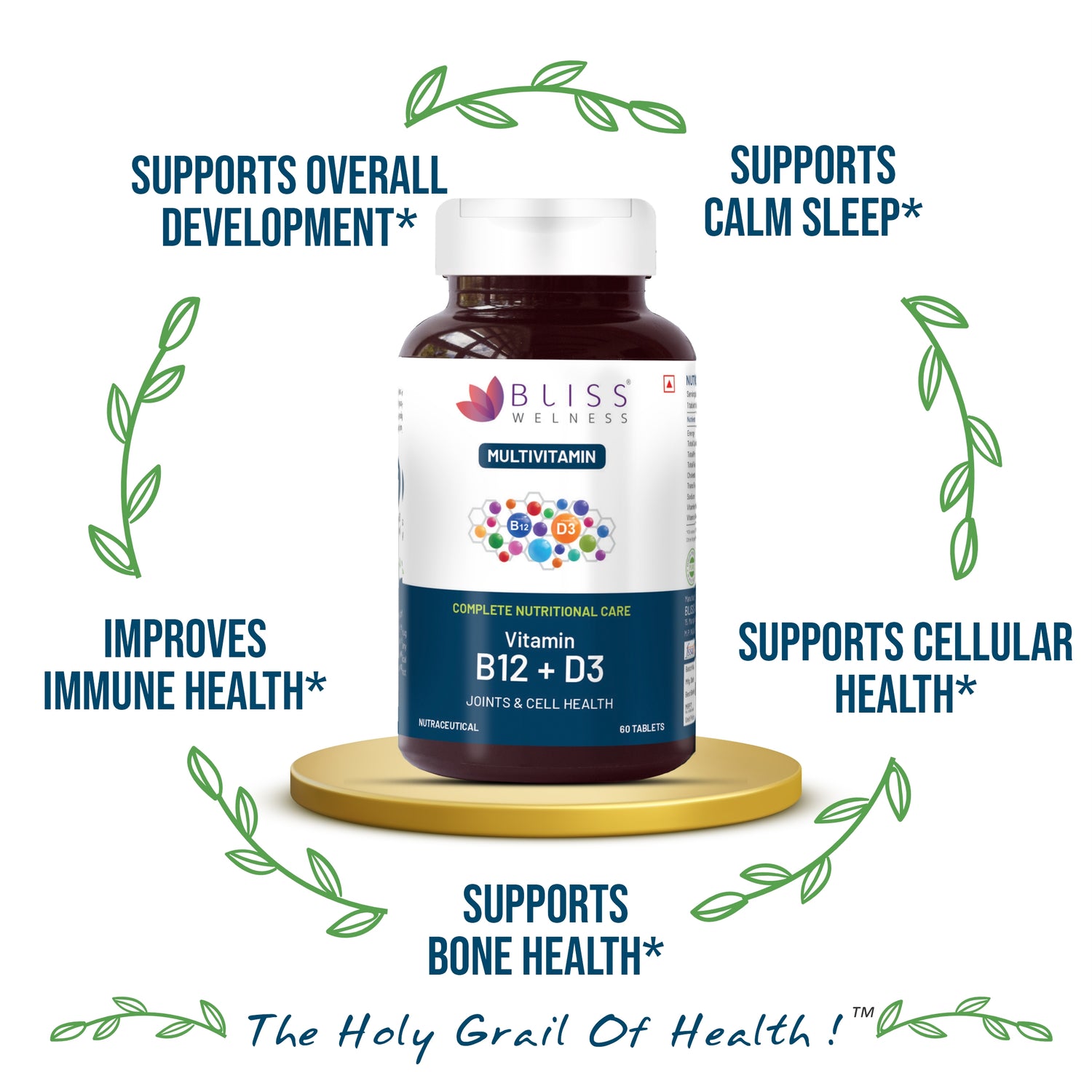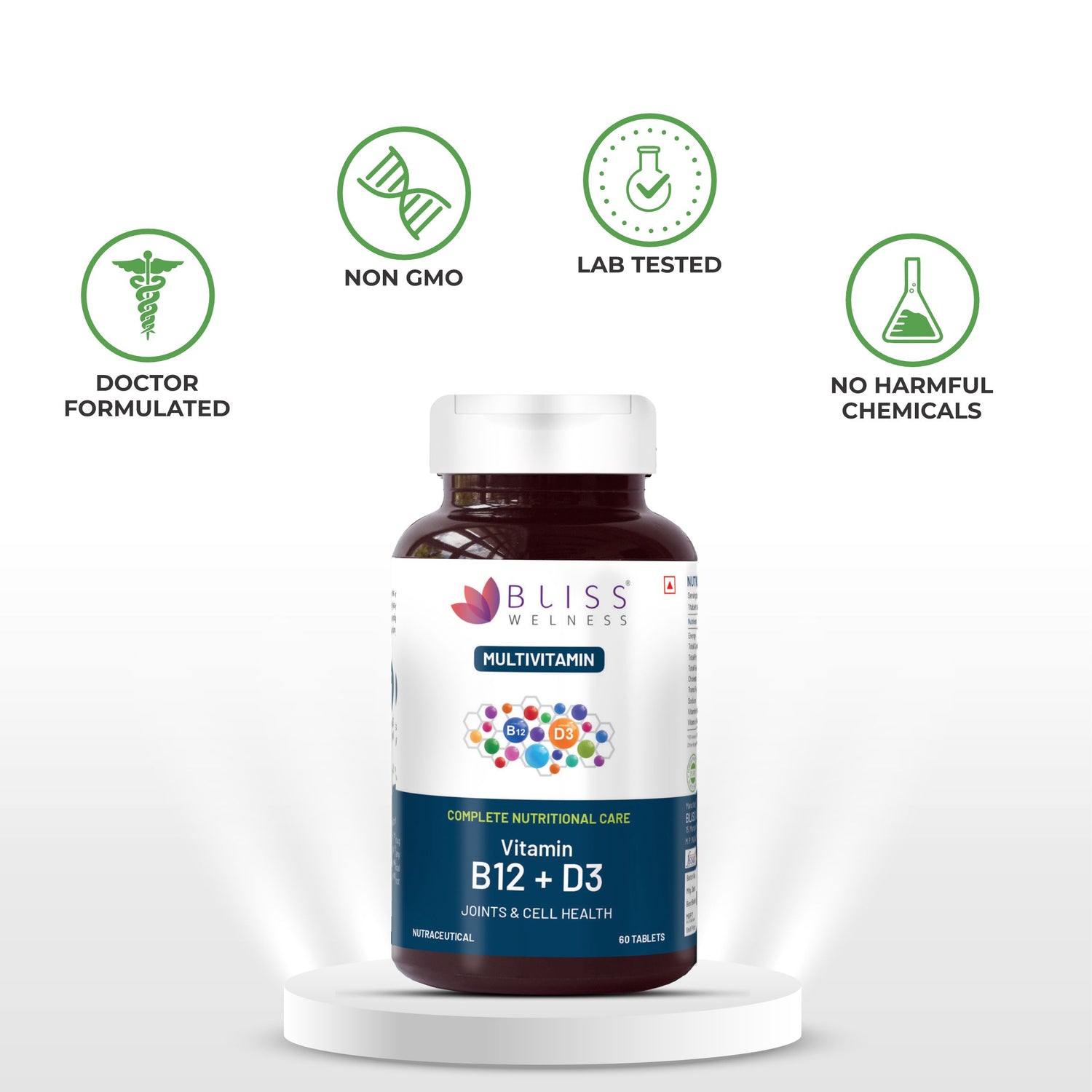How does it support your wellness?
Vitamin B12 works by helping your body produce red blood cells, which carry oxygen throughout your body. This is crucial because without enough red blood cells, you can feel tired or weak. B12 also supports the production of DNA and keeps your nerve cells healthy, which is important for brain function.
Vitamin D3 helps your body absorb calcium from the food you eat. Calcium is vital for strong bones and teeth. When your vitamin D levels are good, your body can keep your bones dense and strong, which helps prevent fractures. Additionally, vitamin D3 plays a role in regulating your immune system, helping your body fight off infections and illnesses more effectively.
Get the Most from BlissWelness B12 and D3
To get the best out of Vitamin B12 and D3, consider the following tips:
1. Choose Quality Supplements: Look for high-quality vitamin B12 and D3 supplements that are free from fillers and additives. Check for third-party testing to ensure potency and purity.
2. Follow Recommended Dosages: Stick to the recommended dosage on the supplement label or as advised by your healthcare provider. Taking too much can lead to side effects.
3. Take with Food: Taking these vitamins with a meal can enhance absorption. Vitamin D is fat-soluble, so a meal containing healthy fats can help your body absorb it better.
4. Combine with a Balanced Diet: Eat foods rich in B12 (like meat, fish, dairy, and fortified cereals) and D3 (like fatty fish, egg yolks, and fortified dairy products) to support your intake.
5. Stay Consistent: Make taking your vitamins a regular part of your daily routine to maintain optimal levels in your body.
6. Get Regular Check-ups: Consult with a healthcare professional for regular blood tests to monitor your B12 and D3 levels, especially if you have specific health concerns.
7. Be Mindful of Interactions: If you're taking other medications or supplements, check with your healthcare provider to avoid any potential interactions.
FAQS
1. What are the benefits of Vitamin B12 and Vitamin D3 supplements?
Vitamin B12 supports energy production, promotes healthy red blood cell formation, boosts brain health, and helps improve mood. Vitamin D3 enhances calcium absorption, supports immune function, strengthens bones, and promotes heart health.
2. How does Vitamin B12 help with energy levels?
Vitamin B12 plays a crucial role in converting food into energy, reducing fatigue and tiredness. It helps improve overall vitality and keeps you feeling energized throughout the day.
3. Can Vitamin D3 improve bone health?
Yes, Vitamin D3 helps your body absorb calcium, which is essential for strong and healthy bones. It helps maintain bone density and reduces the risk of fractures.
4. Is Vitamin D3 important for immune health?
Vitamin D3 strengthens the immune system, helping you fight off common illnesses and infections. It supports the body’s natural defense mechanisms.
5. How does Vitamin B12 support brain health?
Vitamin B12 plays an important role in supporting cognitive function. It helps improve memory, focus, and mental clarity, reducing the risk of brain-related health issues.
6. Can Vitamin D3 promote heart health?
Vitamin D3 may contribute to a healthy heart by helping regulate blood pressure and improving overall cardiovascular function. It supports healthy arteries and may help prevent heart disease.
7. How much Vitamin B12 and Vitamin D3 should I take daily?
The recommended daily intake of Vitamin B12 is around 2.4 micrograms for most adults. For Vitamin D3, a daily dose of 600–800 IU is typically recommended, depending on age and health needs.
8. Can I take Vitamin B12 and Vitamin D3 together?
Yes, you can take both Vitamin B12 and Vitamin D3 together. They complement each other by supporting different aspects of your health, from energy production to immune system strength.
9. Are there any side effects of taking Vitamin B12 and Vitamin D3 supplements?
When taken in recommended doses, Vitamin B12 and Vitamin D3 are generally safe with minimal side effects. However, excessive Vitamin D3 intake can lead to calcium buildup in the blood. Always consult a healthcare provider before starting supplements.
10. Who should take Vitamin B12 and Vitamin D3 supplements?
Vitamin B12 and Vitamin D3 supplements are beneficial for individuals with deficiencies, older adults, those who have limited sun exposure, vegetarians, and people with certain medical conditions that affect nutrient absorption.
11. How do Vitamin B12 and Vitamin D3 support mood and mental well-being?
Vitamin B12 helps reduce feelings of sadness or anxiety, supporting a more positive mood. Vitamin D3 has been linked to improved mental well-being, with some studies suggesting it may help alleviate symptoms of depression.
